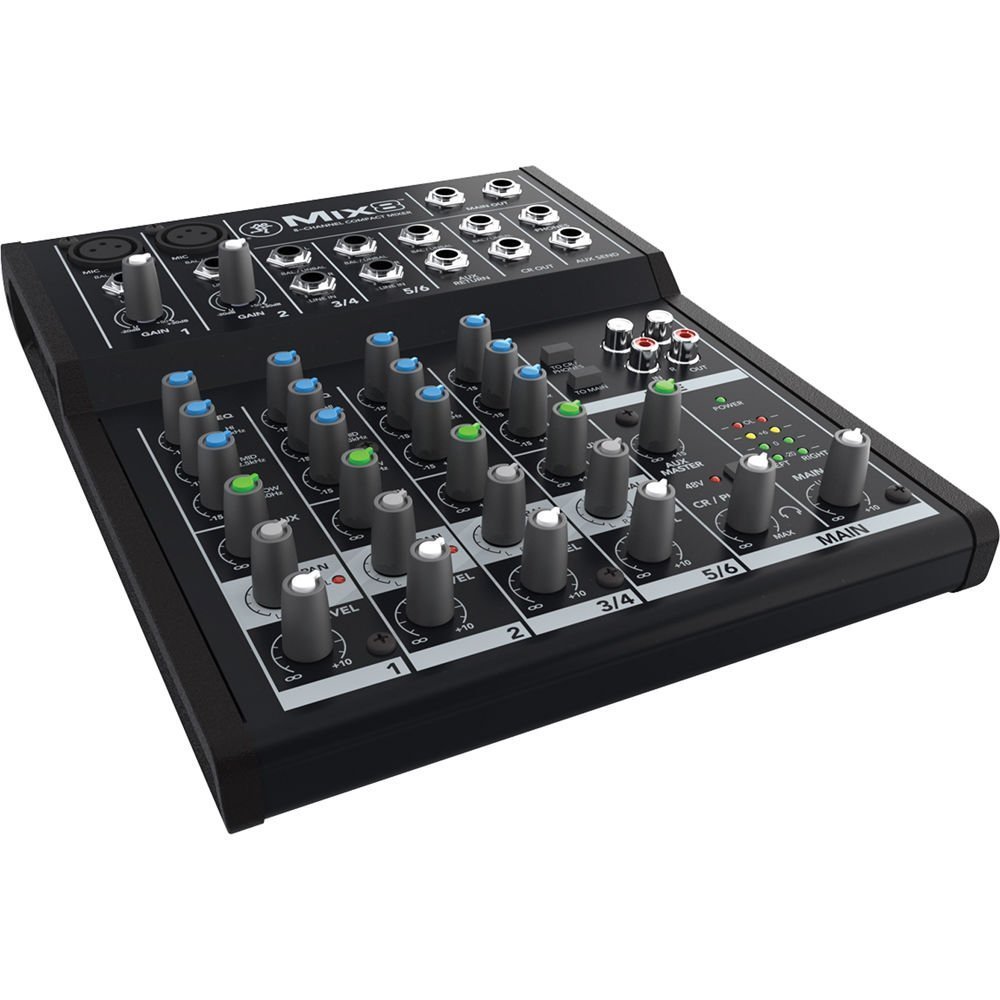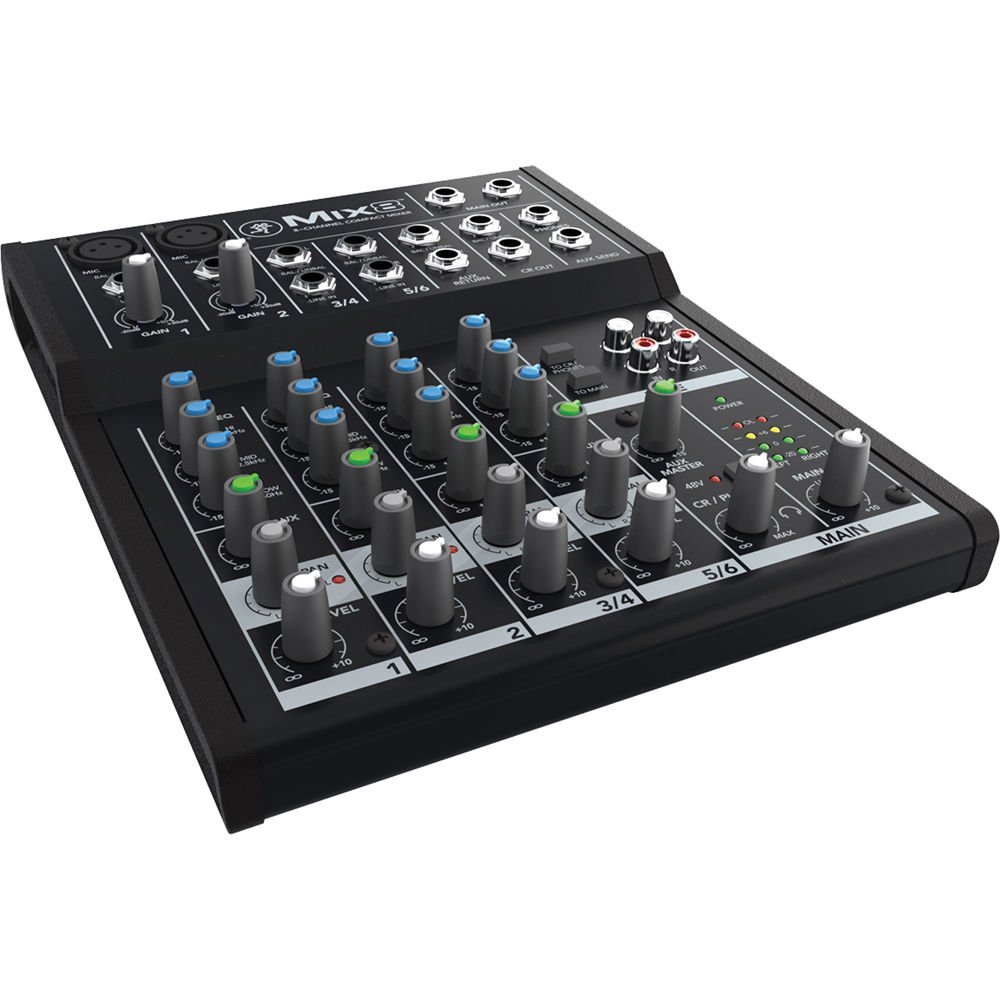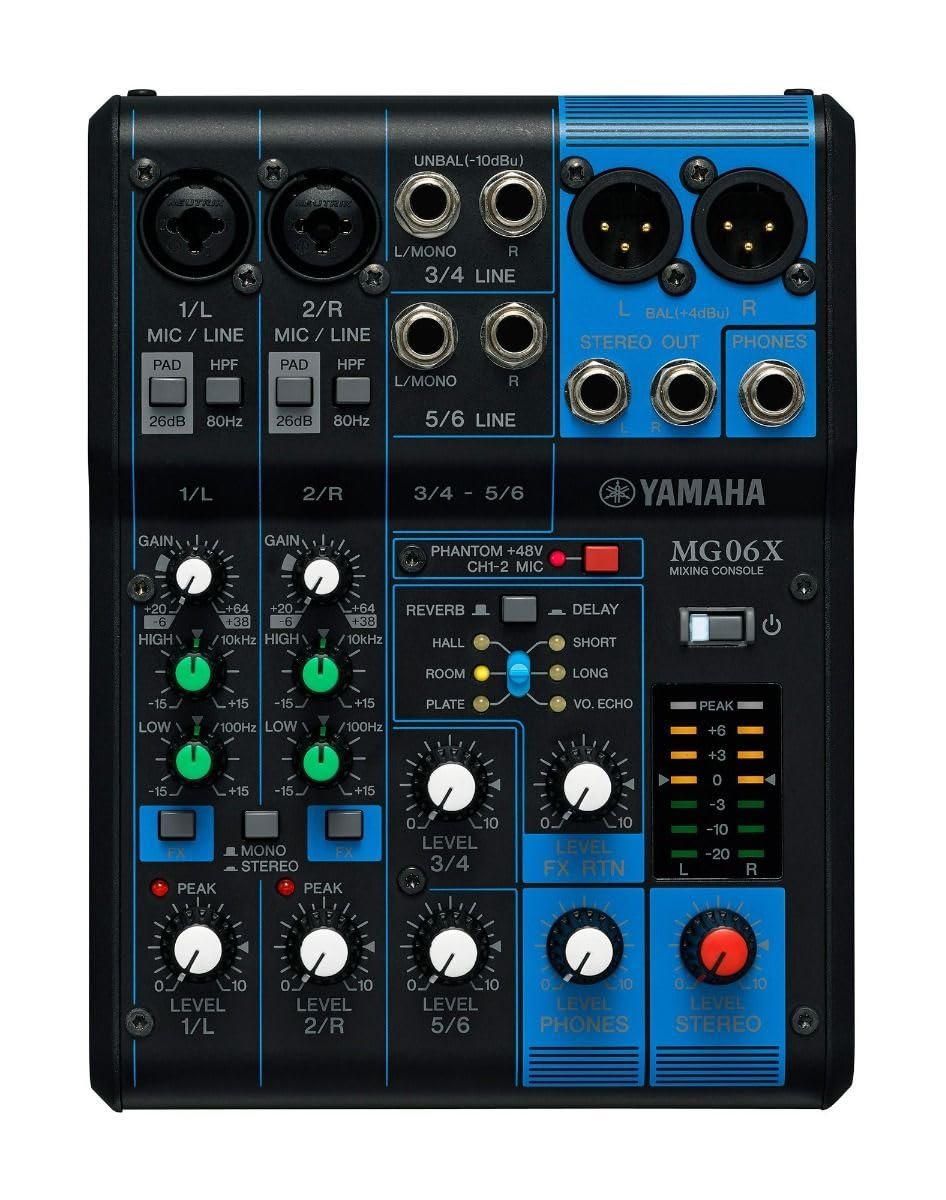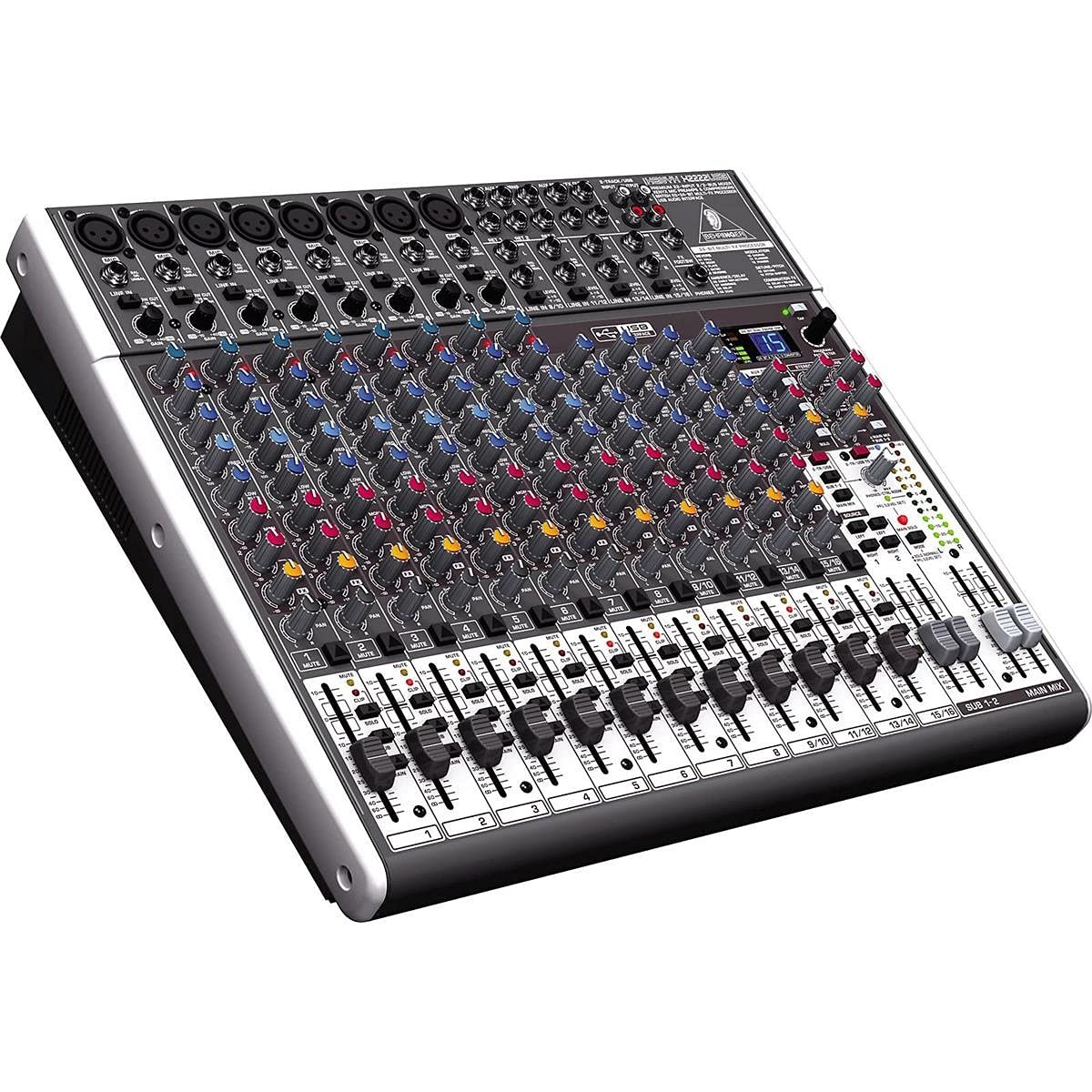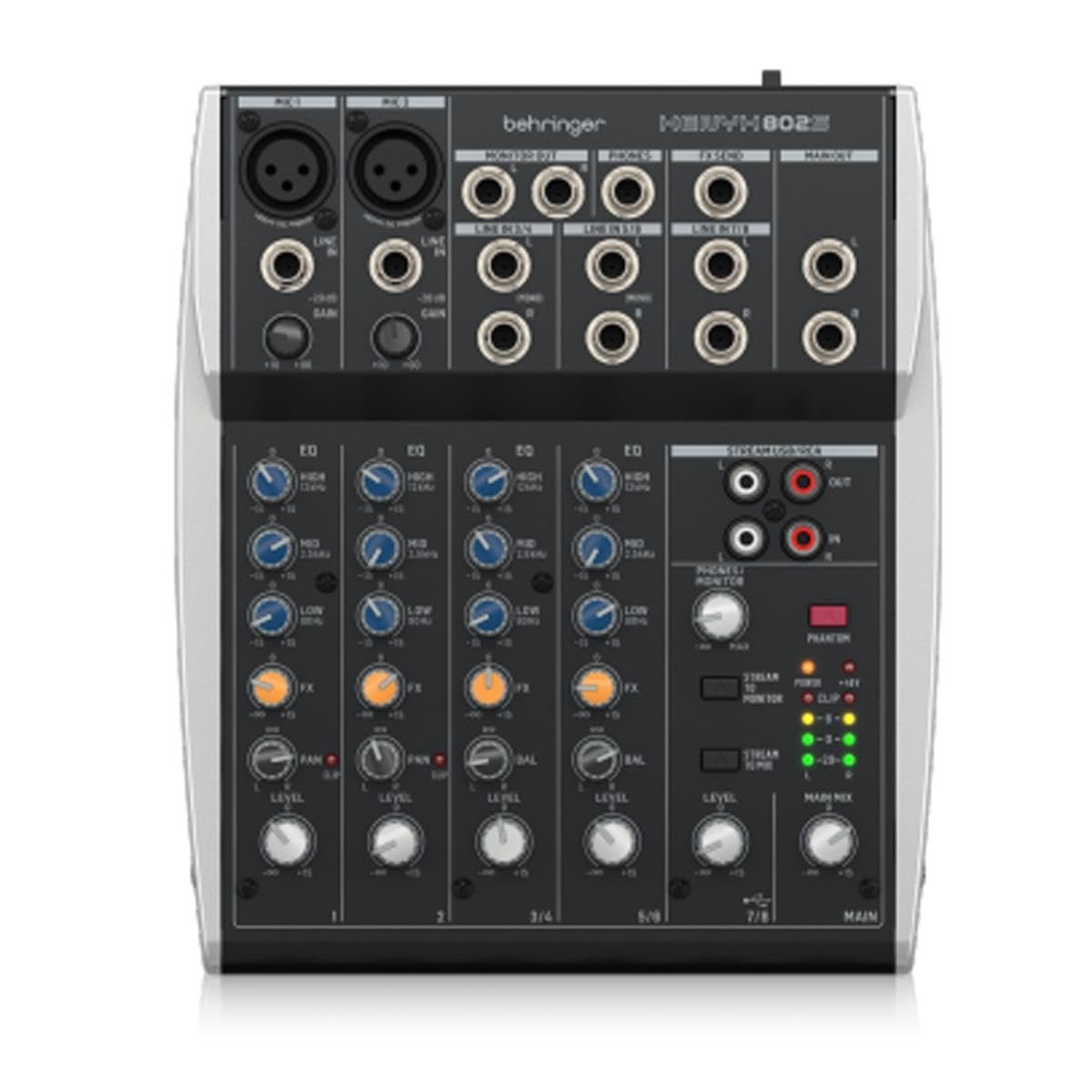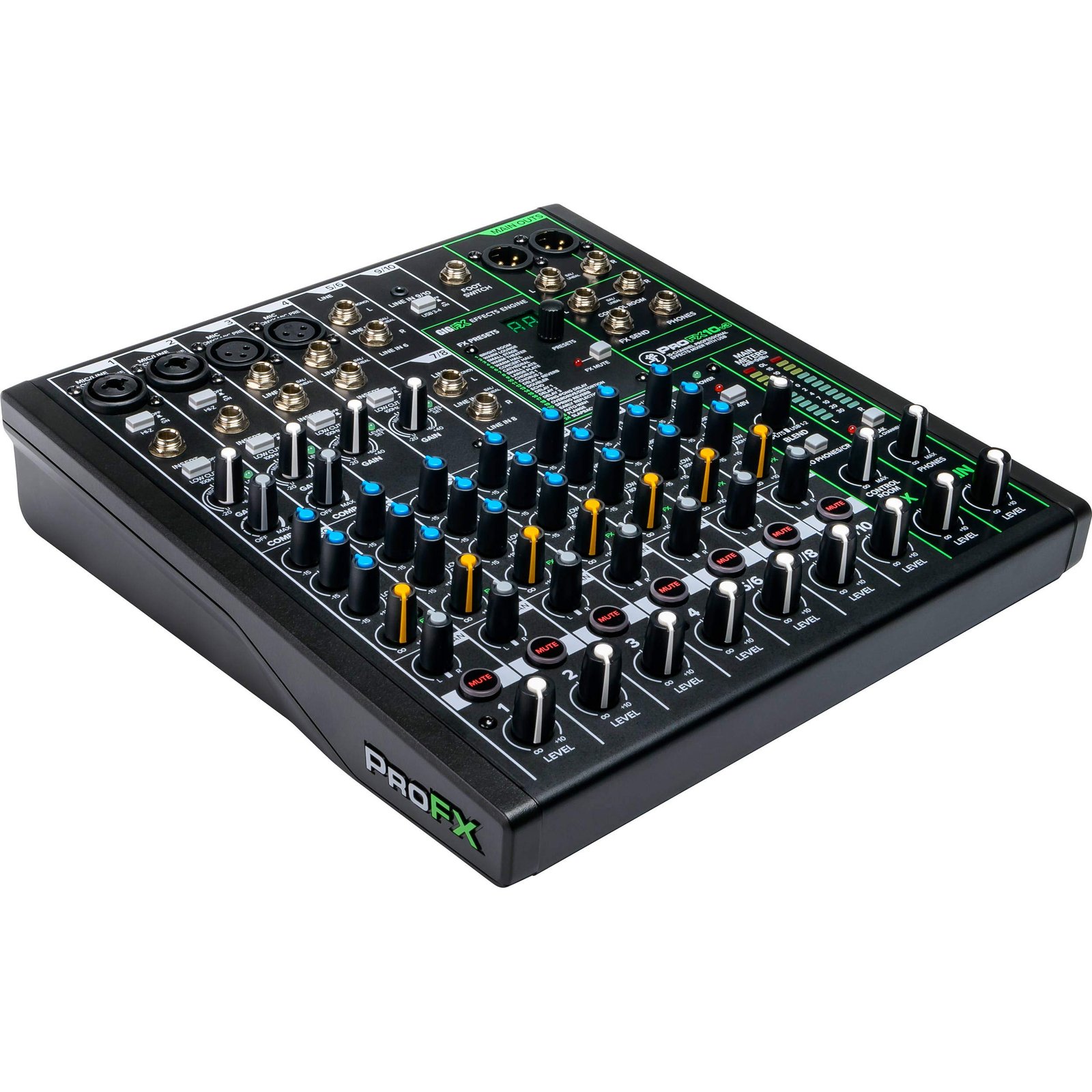Analog mixers are essential tools in the world of audio engineering.
These devices allow you to combine, adjust, and shape multiple audio signals.
You can use them whether you’re recording in a studio, broadcasting live, or performing on stage.
Despite the rise of digital technology, sound engineers still love analog mixers for their straightforward operation and rich, warm sound.
They offer tactile controls, making adjustments intuitive and satisfying.
When considering an analog mixer, focus on the number of channels you need.
This determines how many audio sources you can manage simultaneously.
Pay attention to additional features like built-in effects, equalizer quality, and connection types.
The size and layout of the mixer can also impact your workflow.
This is especially true if you’re working with limited space or plan on transporting the device frequently.
Choosing the right mixer depends largely on your specific needs and budget.
Whether you’re an amateur enthusiast setting up a home studio or a professional handling complex live performances, understanding these facets can help you select the perfect mixer for your audio adventures.
Top Analog Mixers
You’re in the right spot if you’re searching for a reliable analog mixer.
We’ve gathered some of the best options that offer superb sound quality and ease of use.
Dive in to find the perfect mixer for your audio setup.
Mackie Mix8 Compact Mixer
A solid choice if you need a reliable and straightforward mixer for your audio needs.
- Built to last with a durable metal design
- High-quality audio output
- Easy to operate
- Lacks a power switch
- No separate power adapter included
- Some channels might develop noise over time
The Mackie Mix8 offers a no-frills approach with its compact design.
The rugged metal chassis ensures it can withstand some rough handling, making it a trusty companion for both home studios and live gigs.
Its high-quality audio output means you won’t have to worry about noise or distortion ruining your sound.
Despite its strengths, there are a few things to consider.
Notably, the lack of a power switch can be inconvenient, as you’ll need to unplug it to turn off.
Some users have also noted that it doesn’t come with a separate power adapter, which can be troublesome when setting up.
Additionally, there’s feedback about certain channels developing unwanted noise over time, which might affect your experience.
Yamaha MG06X Mixer
The Yamaha MG06X Mixer is a solid choice if you’re looking for reliable performance and sound clarity.
- Offers clean and vibrant sound output
- Compact size makes it easy to transport
- Built-in effects add versatility
- Limited to only six input channels
- No USB connectivity for direct computer recording
- Slight learning curve for beginners
The Yamaha MG06X is an excellent pick for anyone needing a dependable, high-quality analog mixer.
Its robust construction ensures durability, making it suitable for both home and live performance settings.
You’ll notice its built-in effects feature enhances your audio capabilities, adding depth and texture to your sound.
Despite its compact design, this mixer packs a punch in terms of sound clarity and control.
It provides vibrant and accurate audio output which is crucial for musicians and audio technicians.
This is a great tool for handling small gigs or personal projects where space and mobility are important.
Although it lacks USB connectivity, making computer recording a task, its other characteristics make it a worthwhile investment.
If you can look past the slight initial learning curve, you’ll find the Yamaha MG06X to be a versatile and reliable addition to your audio gear arsenal.
Behringer Xenyx X2222USB Mixer
The Behringer Xenyx X2222USB Mixer is the perfect choice if you’re looking for a versatile mixer at an affordable price.
- Versatile inputs for various connections
- Built-in effects for creative freedom
- User-friendly USB interface
- Some issues with USB interface reliability
- Limited tech support availability
- May be bulky for smaller setups
If you need a mixer with plenty of inputs, the Xenyx X2222USB is worth a closer look.
This board won’t overwhelm you with its straightforward setup and operation.
With 22 inputs, including several mic inputs, it handles live performances and studio recordings with ease.
Aside from the input options, the built-in effects add an extra layer of creativity.
The Voice Canceller is particularly fun if you enjoy karaoke.
Plus, the USB feature is handy for both live and recording purposes, giving you flexibility in how you work.
However, be aware that some users have reported problems with the USB interface.
If tech support is a priority for you, consider this factor before buying.
Otherwise, the quality and features offered at this price point make it a solid choice for many users.
Behringer Xenyx 802S Mixer
This mixer might be your best friend if you’re after an affordable and efficient audio setup.
- Ideal for streaming with crisp sound delivery
- Reduces unwanted noise for a clean recording
- Compact design fits in tight spots easily
- Doesn’t include a MIDI cable
- Can be slightly noisy at high gains
- Limited to 8 channels
This Behringer mixer shines when it comes to streaming and recording tasks.
Whether you’re podcasting or trying to get the best sound for gaming videos, its clarity is a strong selling point.
It’s uncomplicated and quite beginner-friendly, making your leap into audio mixing a breeze.
With an ultra-low noise system, you’re less likely to get disrupted by hums or buzzes, even in quiet settings.
The USB connectivity means you can hook it up directly with your computer, making it versatile for different audio projects.
Despite its compact nature, you should ensure it meets your needs by considering the eight-channel limit.
While it offers excellent value, the mixer might not suit those who need a larger setup or multiple input sources simultaneously.
Mackie ProFX10v3 Mixer
If you’re in search of a versatile mixer with solid sound and a range of features, the Mackie ProFX10v3 is worth considering.
- Built-in effects add variety to sound mixing.
- User-friendly USB connectivity for recording.
- Durable construction that stands up to consistent use.
- Limited XLR inputs might not suffice for all users.
- Requires a power source; can’t operate on batteries.
- Simple compression may not meet advanced needs
The Mackie ProFX10v3 Mixer promises a blend of functionality and ease of use for hobbyists and professionals.
With its 10-channel capacity, it suits various setups, from home studios to live performances.
Its portability and sound quality make it a practical choice for anyone needing a reliable mixer.
Featuring high-quality Onyx mic preamps, it ensures clear and crisp audio capture.
Not to mention, the 24 built-in effects provide a wide range of options for enhancing your audio mix.
You’ll appreciate its straightforward USB connection for easy recording or streaming directly to your computer.
While it shines in many areas, there are a few considerations.
The limited number of XLR inputs could be a constraint depending on your requirements.
Additionally, the reliance on a corded power source may be limiting in more mobile setups.
Despite these points, you’ll find it offers substantial value for its price point.
Buying Guide
When shopping for an analog mixer, there are a few key factors you might want to consider to help you make the right choice.
Features to Consider
-
Channels: Determine how many channels you need. Think about how many microphones and instruments you plan to connect.
-
EQ Options: Check if the mixer offers basic or parametric EQ controls for tweaking the sound.
-
Outputs: Ensure there are enough output options for your needs, such as main outputs, monitor sends, and aux outputs.
Build Quality
Durability is crucial, especially if you plan on frequently moving or touring with your mixer.
Look for mixers with a solid build and reliable components.
Portability
If you need to transport your mixer often, consider its weight and size.
Lightweight and compact designs are easier to carry around.
Budget
Analog mixers come in a range of prices.
Determine your budget and find a model that fits your price range while still meeting your needs.
Extra Features
-
Built-in Effects: Some mixers offer built-in effects like reverb or delay, which can be handy.
-
USB Connectivity: If you want to connect the mixer to a computer, look for USB interfaces.
Table of Considerations
| Feature | Importance |
|---|---|
| Channels | Ensures connectivity |
| EQ Options | Allows sound customization |
| Outputs | Facilitates connection options |
| Durability | Affects lifespan and reliability |
| Portability | Makes transportation easier |
| Price | Keeps within budget |
Taking into account these aspects can help you choose the best mixer for your needs.
Frequently Asked Questions
You’ll find answers to common questions about analog mixers here.
Explore differences from digital mixers, reasons for preference, selection tips, and recommendations for various needs.
What’s the difference between an analog mixer and a digital mixer?
Analog mixers manage signals in their original analog form, while digital mixers convert these signals into digital data for processing.
Analog mixers are usually simpler to operate, with physical knobs and sliders for immediate control.
On the other hand, digital mixers offer more advanced features and flexibility through digital interfaces.
Why do some audio engineers prefer analog mixers?
Some audio engineers appreciate the warmth and character that analog mixers impart to audio signals.
The hands-on control offered by analog mixers can also provide a tactile and intuitive experience.
Analog systems often have less latency, which can be important in specific live sound scenarios.
How do I choose the best analog mixer for a home studio setup?
To find the best analog mixer for a home studio setup, consider the number of channels you need, built-in effects, and connectivity options.
Look for features like EQ controls, auxiliary sends, and direct outs, which can enhance your setup’s versatility.
Make sure the mixer size fits your space, and check if it integrates well with existing gear and software.
What are some top-rated analog mixers for live sound events?
Popular options for live sound events include the Mackie VLZ series and the Soundcraft Signature series.
Both offer robust performance and reliable design suitable for live applications.
Look for mixers that provide enough inputs for your setup and require minimal maintenance, which is crucial for live events.
Can you recommend an analog mixer with multitrack recording capabilities?
If you need an analog mixer with multitrack recording capabilities, consider the Allen & Heath ZED series and TASCAM Model series.
These mixers allow you to record multiple tracks simultaneously, making them ideal for both live and studio settings where capturing high-quality audio is essential.
What should I look for in an analog mixer if I’m a beginner?
Start with a mixer that has a straightforward layout and intuitive controls.
Features like built-in effects and a moderate number of channels can offer flexibility while you learn.
Pay attention to durability and reviews to ensure you’re choosing a product that suits your beginner needs without being overwhelming.

